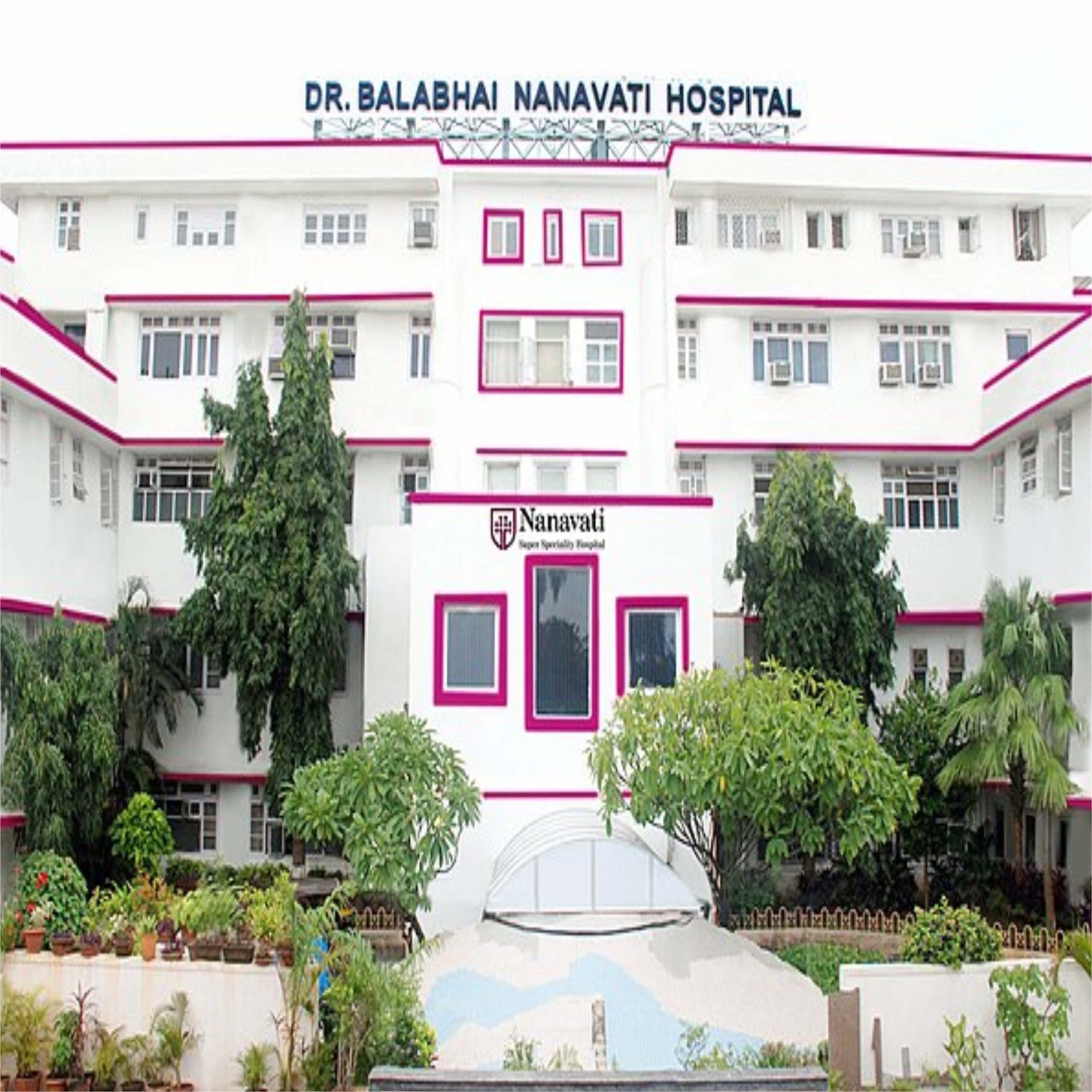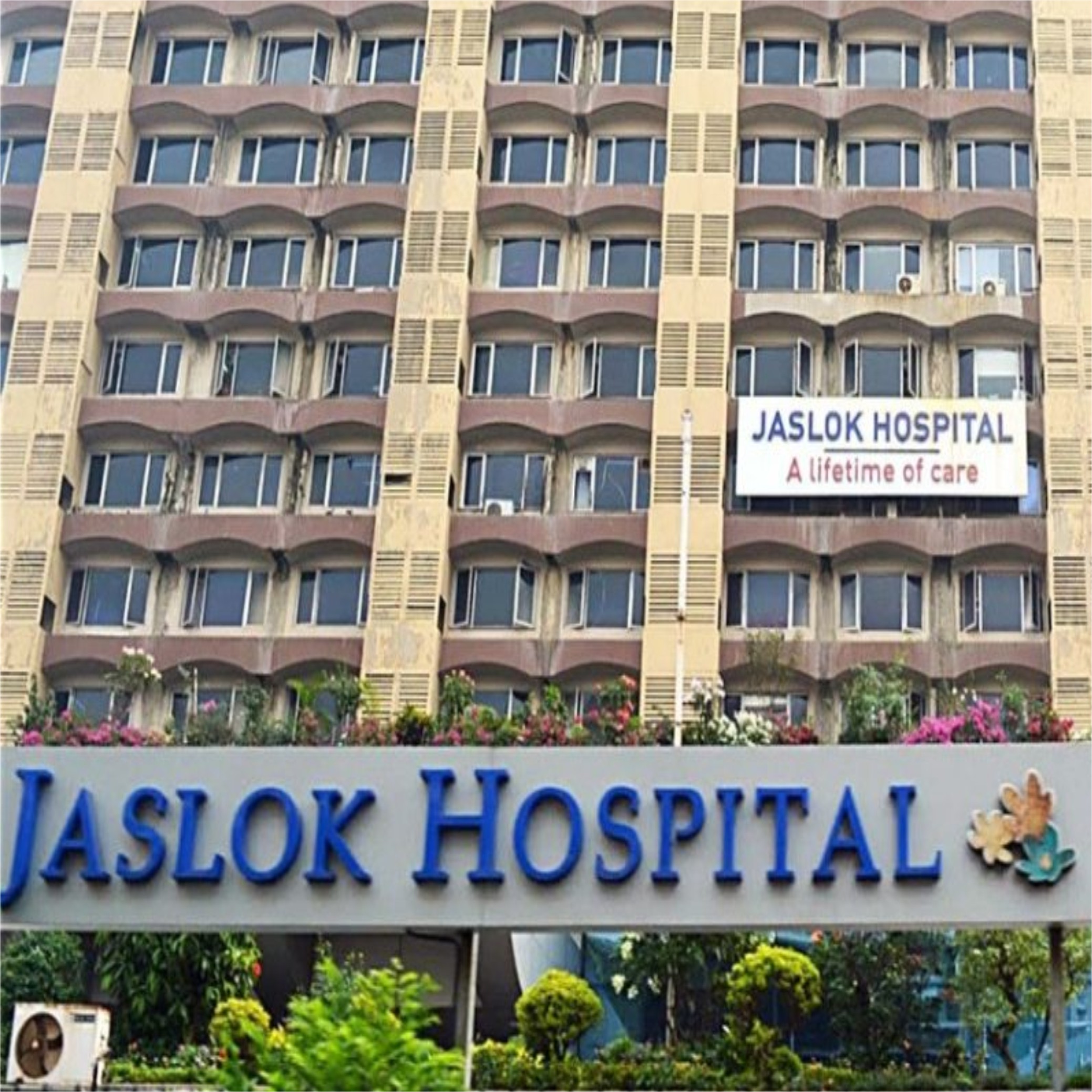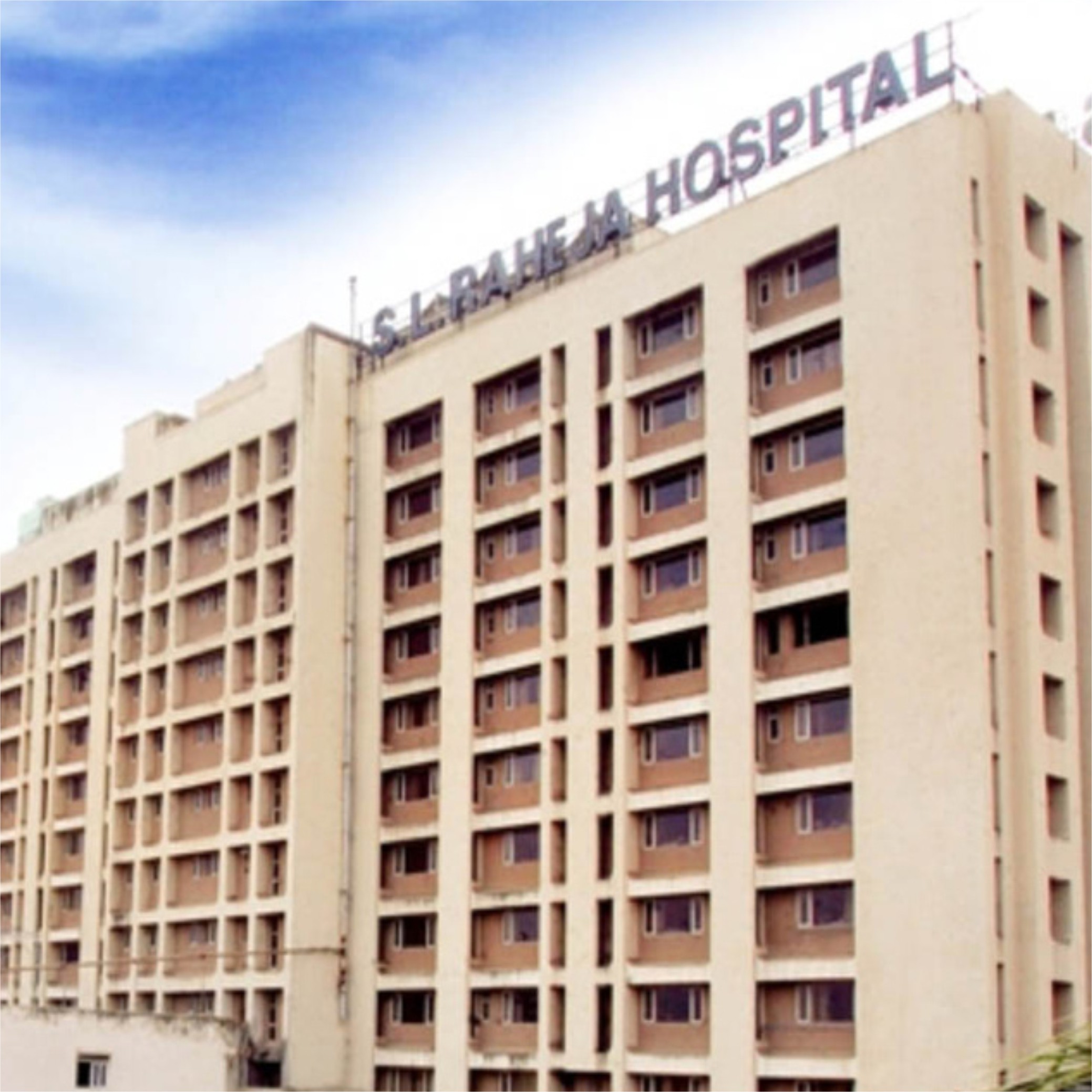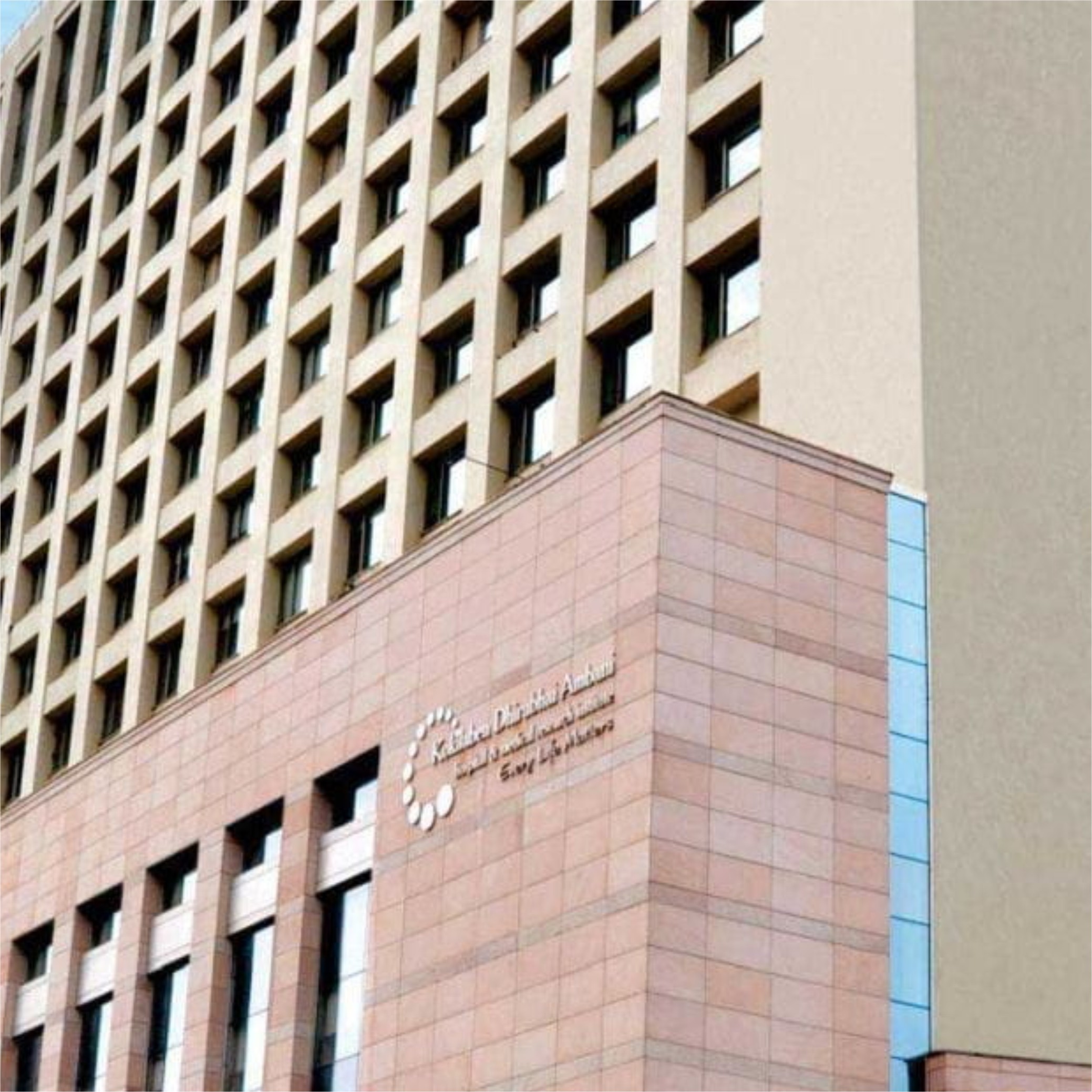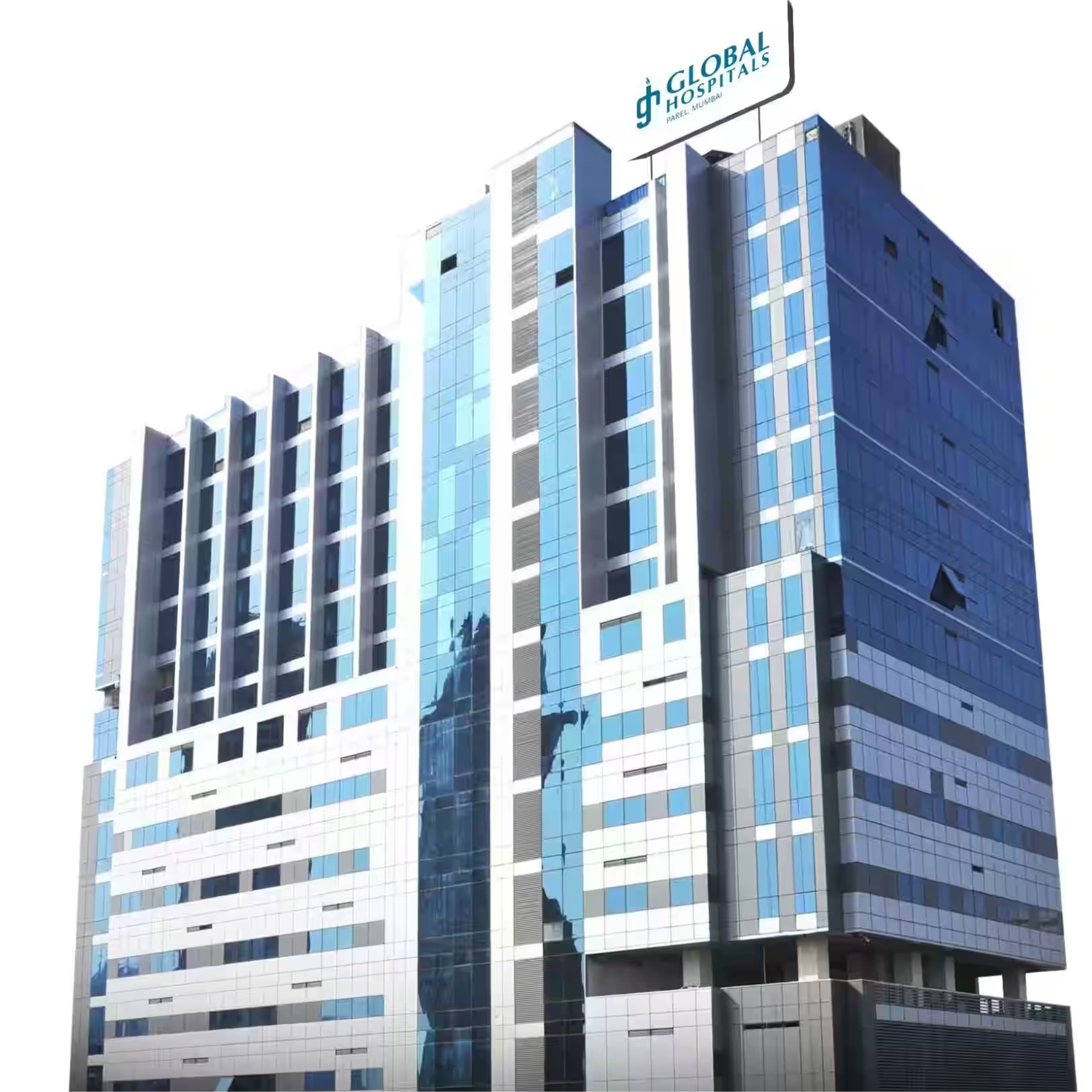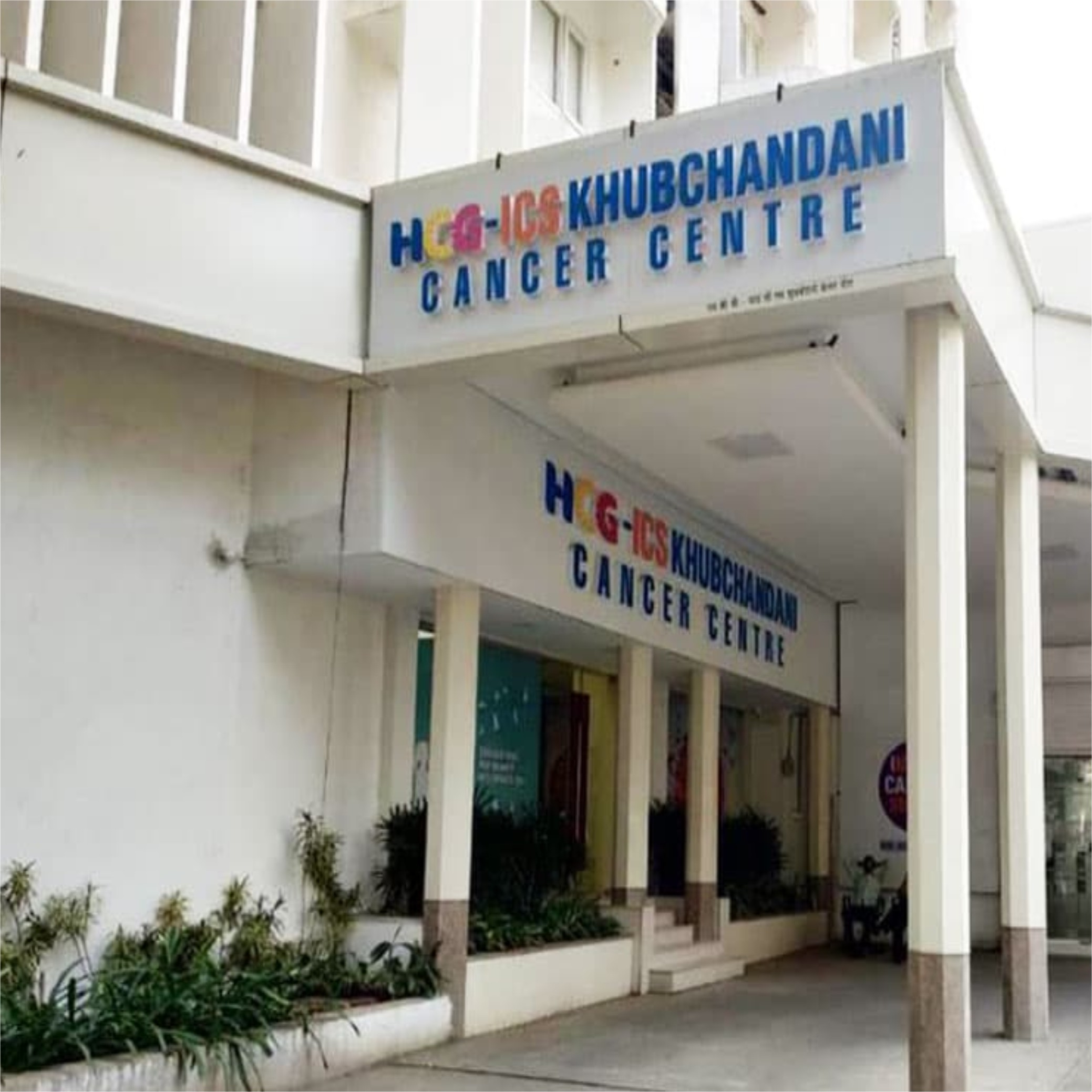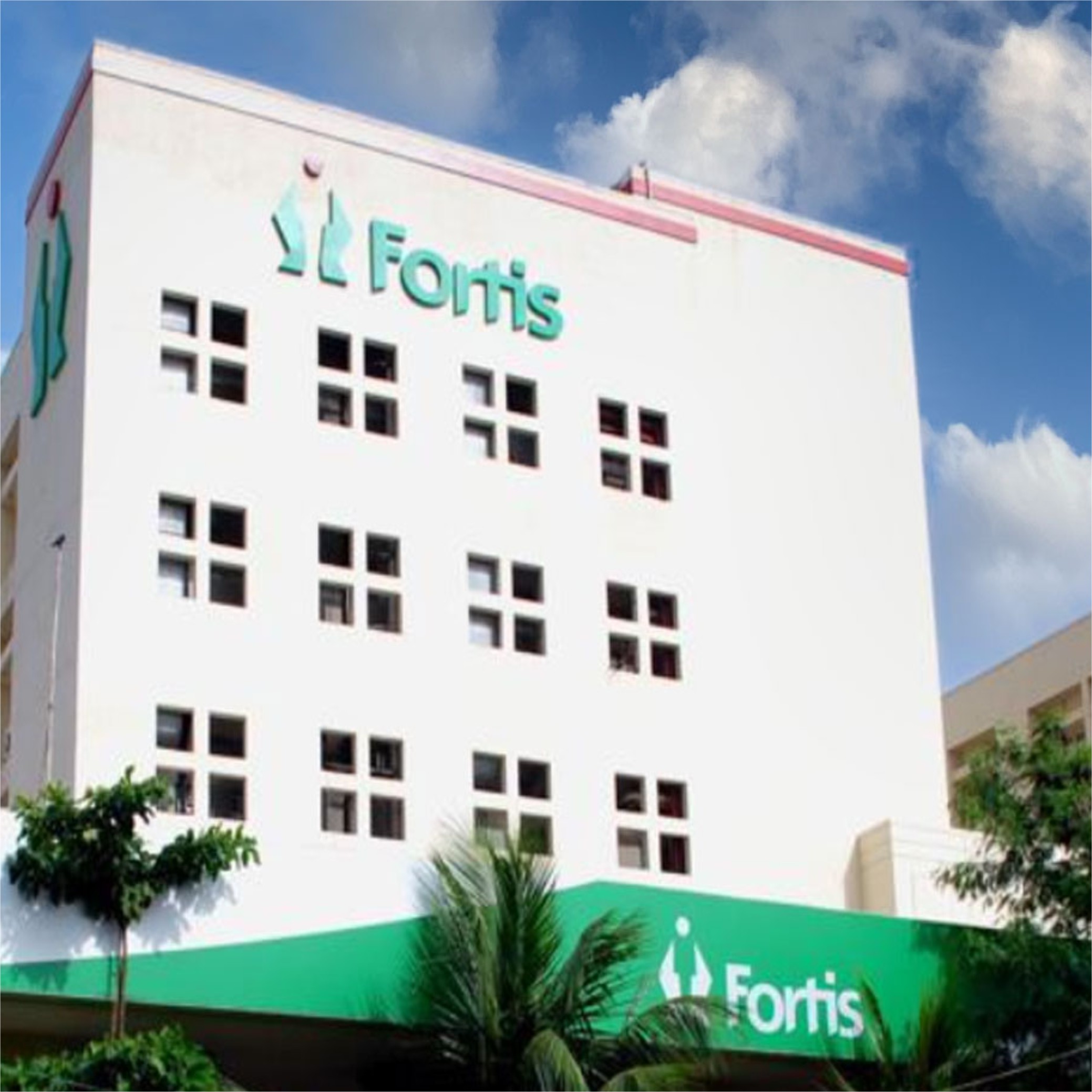Gastrojejunostomy: Bridging Health and Renewal
Ready to witness the remarkable shift in the lives of those touched by gastrojejunostomy?
Gastrojejunostomy, often referred to as GJ, is a surgical procedure that connects the stomach and the jejunum, part of the small intestine. It’s used to treat a variety of medical conditions, most notably for patients suffering from debilitating conditions like gastroparesis, gastric outlet obstruction, and certain cases of weight loss.
Let’s delve deep into the world of gastrojejunostomy, exploring its significance, the procedure itself, and how it can offer renewed hope and vitality to those in need.
But before we dive into the technical aspects of gastrojejunostomy, let’s begin with Sarah’s inspirational journey, which will set the stage for our exploration.
The Inspiring Journey of Sarah
Sarah was a vibrant, determined young woman who, like many of us, had dreams and aspirations. She was passionate about her career and loved to explore the world through her travels. Her life was turned upside down when she was diagnosed with gastroparesis.


Gastroparesis is a condition where the stomach muscles fail to function correctly, leading to a range of debilitating symptoms, including severe nausea, vomiting, abdominal pain, and a reduced ability to digest food.
For years, Sarah struggled to manage her condition with dietary restrictions, medications, and lifestyle modifications, but her symptoms persisted, robbing her of the joy she once found in everyday life.
She had almost given up hope when she heard about MedicoExpert, a renowned healthcare network that specializes in advanced medical procedures, including gastrojejunostomy.
After conducting extensive research and consulting with her healthcare team, Sarah decided to explore the possibility of undergoing a gastrojejunostomy procedure. She was anxious but filled with hope, knowing that this procedure could potentially transform her life and allow her to regain her independence.
He contacted MedicoExperts and was connected with a dedicated case manager who guided him through the entire process. They collected his medical records and shared them with the hospital in India for evaluation. Robert’s case was assessed by a team of expert doctors, who confirmed that he was a suitable candidate for stem cell treatment.
With the help of MedicoExperts, Robert made all the necessary arrangements, including travel and accommodation. He arrived in India and was warmly welcomed by the hospital staff.
He underwent a thorough examination and consultation with the doctors, who explained the procedure and addressed all his concerns.
The stem cell treatment involved extracting stem cells from Robert’s own bone marrow. The cells were processed and purified, ensuring their quality and potency. A few days later, Robert underwent the procedure with skilled doctors and state-of-the-art facilities.
As the days passed, Robert diligently followed the post-treatment care plan, which included physical therapy and pain management. He noticed gradual improvements in his mobility and a reduction in knee pain. As time went on, his progress continued, and he regained his ability to walk without discomfort.
Months later, Robert returned to Lagos, a transformed man. The stem cell treatment he received gave relief to his pain and improved the overall function of his knees. He shared his success story with his friends, family, and even strangers, hoping to inspire others who were suffering from osteoarthritis.
Let us know about osteoarthritis in some detail.


With the support and guidance of the experts at MedicoExpert, Sarah took the courageous step towards her path to recovery. Her surgery went smoothly, and she began her post-operative journey toward healing, accompanied by a dedicated team of medical professionals who were determined to see her through every step of the way.
Months after her procedure, Sarah’s life had transformed beyond her wildest expectations. She was no longer confined by the limitations of her condition. She could enjoy meals with friends, travel without the fear of digestive issues, and pursue her passions once again.
Her journey was a testament to the power of medicine, the expertise of healthcare professionals, and the unwavering support of a healthcare network like MedicoExpert.
Now, you might be wondering, how exactly gastrojejunostomy works, and what makes it such a life-changing procedure. To answer these questions and more, let’s delve into this blog post
Gastrojejunostomy is a surgical procedure that holds immense significance in the world of medical science. It is primarily used to treat conditions that affect the stomach’s ability to empty its contents into the small intestine efficiently.
These conditions include gastroparesis, gastric outlet obstruction, and certain cases of weight loss where dietary intervention and medications have proven ineffective.
Why is Gastrojejunostomy Surgery Performed?
Gastrojejunostomy surgery is performed for various medical reasons, primarily to address conditions that affect the stomach’s ability to efficiently empty its contents into the small intestine.
The procedure involves creating a direct connection between the stomach and the jejunum (the first part of the small intestine).
Here are some of the key medical conditions and situations for which gastrojejunostomy surgery is done:
A disorder known as gastroparesis is one in which the muscles of the stomach do not operate as they should, which results in a delay in the emptying of the stomach.
This disorder can cause the following symptoms:
- chronic nausea,
- vomiting,
- abdominal pain,
- bloating, and
- an inability to digest food efficiently.
Gastrojejunostomy helps bypass the dysfunctional part of the stomach, allowing food to pass more smoothly into the small intestine and relieving the symptoms of gastroparesis.
Gastric outlet obstruction occurs when there is a physical blockage or narrowing at the point where the stomach empties into the small intestine.
Several things can contribute to this, including:
- tumors,
- ulcers,
- scar tissue, or
- inflammation.
Gastrojejunostomy is performed to create a new pathway for food to bypass the obstruction and continue its journey through the digestive system.
In some cases, unexplained or excessive weight loss can be attributed to a condition that hinders the body’s ability to absorb nutrients effectively.
Gastrojejunostomy can be used to improve nutrient absorption and promote weight gain in individuals who are struggling with significant weight loss.
Gastrojejunostomy may also be performed as a revision procedure in individuals who have previously undergone stomach surgery and are experiencing complications related to their previous surgery.
In some cases where a cure is not possible, gastrojejunostomy may be used as a palliative measure to improve a patient’s quality of life by relieving symptoms and allowing them to maintain some level of oral nutrition.
The choice to undergo gastrojejunostomy surgery is typically made after a thorough evaluation by a medical team, including surgeons and gastroenterologists.
It is important to assess the potential benefits, risks, and individual patient factors before recommending this procedure.
Patients should discuss the procedure and its implications with their healthcare providers to determine if it is the most appropriate course of action for their specific medical condition.
What medical problems can be helped with gastrojejunostomy?
Curious about the conditions that can benefit from gastrojejunostomy? Let’s explore the conditions treated with gastrojejunostomy:
This procedure addresses a blocked outlet at the base of the stomach.
Gastrojejunostomy helps when the blockage occurs in the duodenum.
If cancer causes obstruction or requires the removal of parts of the stomach or duodenum, gastrojejunostomy can be an option.
Complications like bleeding or scarring that impede the passage of food through the stomach or duodenum can be addressed using this procedure.
In certain cases, a preventative gastrojejunostomy might be considered if:
In cases where there’s a high risk of a fistula developing in the duodenum due to persistent inflammation, the diversion of food away from the injury aids in healing.
Gastrojejunostomy can be employed if pancreatic cancer near the duodenum can’t be surgically removed, preventing potential obstructions between the stomach and duodenum from occurring.
These are the various conditions where gastrojejunostomy is employed, addressing specific obstructions or potential complications in the upper gastrointestinal tract.
What Is The Procedure Of Gastrojejunostomy?
Let us learn about the procedure in detail:
Before Gastrojejunostomy:
Before the surgery, you might need other treatments to be healthy. If your stomach or intestine is blocked, you might have trouble eating, vomiting a lot, or feeling weak.
- Getting fluids: You might get special fluids through a tube to fix any problems in your body.
- Special food through a tube: Sometimes, you might get special food through a tube to help you be stronger.
- Extra blood: If you need more blood, you might get it from someone else.
- Antibiotics: You might get special medicine before surgery to stop infections.
- Reducing stomach pressure: They might put a tube down your throat to help your stomach before surgery.
Let us understand what happens during this surgical process:
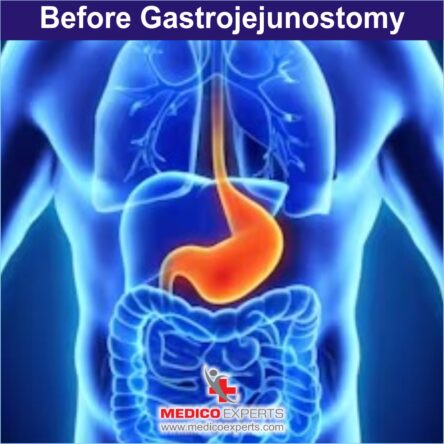
During Gastrojejunostomy:
- You’ll sleep during the surgery.
- A tube goes into your stomach.
- The surgeon finds and fixes the problem in your stomach or intestine.
- They connect a special part of your intestine to your stomach to fix the issue.
- The surgeon checks for any problems after fixing things.
- Then, they close the cuts and finish the surgery.
Let us see what happens after the process:
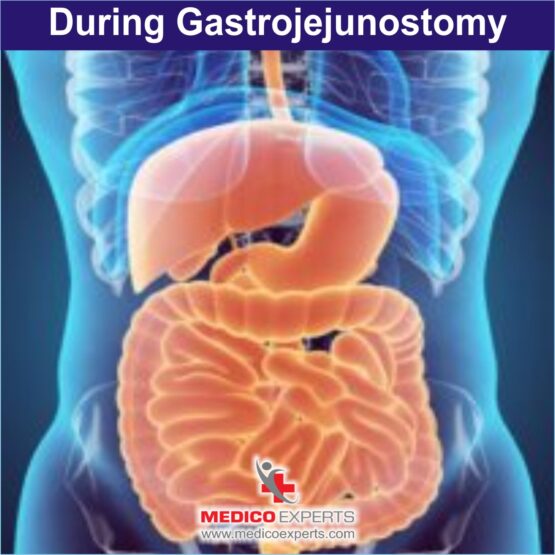
After Gastrojejunostomy:
- Following the surgery, you will be checked into the hospital for observation.
- It might take time before you can eat regular food again.
- Sometimes, your stomach might take a while to work normally after surgery. In that case, you might need special food through a tube or a tube in your nose to help.
- You might start with special drinks and slowly switch to soft foods before going home.
The surgery might mean your stomach takes some time to work properly again. This might mean more special food or drink for some time.
The gastrojejunostomy procedure typically takes between two to four hours.
This timeframe includes the time you’ll be asleep for the surgery and the steps involved in the operation.
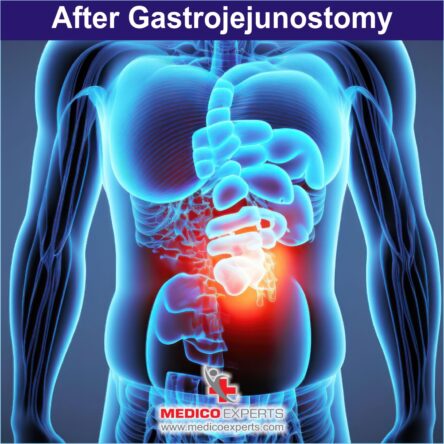
What are the risks and long-term effects after gastrojejunostomy?
Let’s talk about what might happen after a special surgery called gastrojejunostomy. Just like all surgeries, there are a few things that can sometimes cause problems.
We’ll look at the risks during the surgery and also some things that might happen later on. We’ll simply explain these, so it’s easy to understand.
As individuals consider the transformative journey of Gastrojejunostomy surgery, it’s essential to be informed about potential possible risks and extra long-term effects that may arise during and after the procedure.
Let us see them all in detail:
- Bleeding or blood clots.
- Damage to nearby organs.
- Scar tissue forming inside.
Sometimes, the new connection between your stomach and intestines might leak. This could cause infection.
This infection could be dangerous if it spreads in your body.
- Dumping Syndrome: After eating, you might feel sick because food goes quickly into your small intestine.
- Ulcers: Sometimes, your small intestine might get ulcers because it isn’t used to the strong stomach acid.
- Bile Reflux: Your stomach might get irritated if a valve isn’t working well, letting stomach juices go back up.
What is the recovery timeline after gastrojejunostomy?
After the surgery, it takes around six weeks to get better. Sometimes, it might take longer or shorter, depending on how big the surgery was and if it was open or laparoscopic.
The doctors might have cut a part of your stomach and small intestine. If it was for cancer, they might have taken out more.
The doctors will tell you how to take care of your cut, how to deal with any pain at home, and when you can do normal things again. They’ll check you a few weeks later to make sure you’re healing okay.
You might need a special diet for a few months. It will depend on how much of your stomach and intestine was taken out and if you have any problems after eating. You might need to eat very carefully, take extra vitamins, and avoid sugary foods.
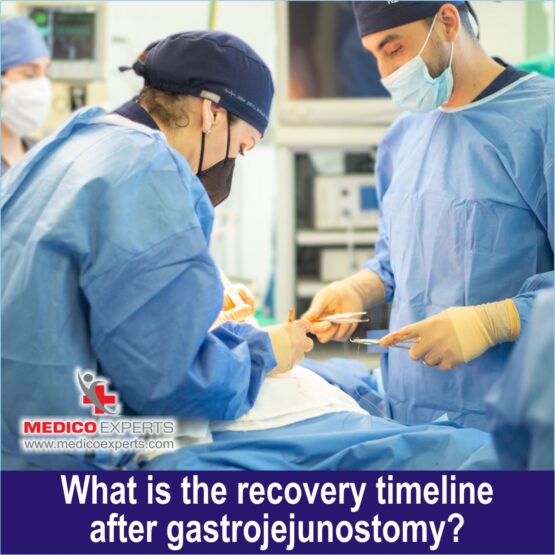
How Gastrojejunostomy Can Offer Better Living?
Gastrojejunostomy can be a life-changing procedure for patients like Sarah who have been living with the physical and emotional burdens of their condition. It offers renewed hope in several ways:
Patients with conditions like gastroparesis often experience chronic nausea, vomiting, abdominal pain, and the inability to eat a full meal. Gastrojejunostomy provides relief from these symptoms, significantly improving their quality of life.
For those suffering from gastric outlet obstruction or severe weight loss, the procedure ensures better nutrient absorption, which can lead to weight gain and improved overall health.
Patients can regain their freedom and independence, as they are no longer limited by their condition. They can enjoy meals, travel, and partake in social activities with newfound confidence.
Overcoming the limitations imposed by a chronic condition can have a profound impact on one’s mental well-being. Gastrojejunostomy allows patients to rediscover their sense of self and positive outlook on life.
MedicoExperts, the healthcare network that played a pivotal role in Sarah’s journey, offers personalized care plans tailored to each patient’s unique needs. This level of customization ensures that the patient receives the best possible care and support.
Now that you have a better understanding of gastrojejunostomy and its transformative potential, let’s take a moment to appreciate the role played by MedicoExpert in Sarah’s journey and countless others like her.
How Can MedicoExperts Provide You Help and Support?
MedicoExperts is not just a healthcare network; it’s a lifeline for patients seeking specialized medical procedures and treatments. Their approach is built on the following pillars:
- Expertise: MedicoExpert brings together a team of highly experienced medical professionals who specialize in a range of advanced surgical techniques, including gastrojejunostomy. Our knowledge ensures that patients receive the finest possible treatment.
- Personalized Care: Every patient is unique, and so are their healthcare needs. MedicoExpert customizes treatment plans to meet each patient’s specific requirements, ensuring the highest chances of a successful outcome.
- Comprehensive Support: The journey towards recovery can be challenging, both physically and emotionally. MedicoExpert offers comprehensive support, from pre-operative consultations to post-operative care and rehabilitation.
- Cutting-Edge Technology: Staying at the forefront of medical advancements, MedicoExpert utilizes the latest technology and minimally invasive surgical techniques to ensure the best possible outcomes for patients.
- A Network of Compassion: Beyond the medical expertise, the team at MedicoExpert understands the emotional and psychological aspects of the healing process. They offer a network of compassion and understanding that goes beyond traditional healthcare.

Conclusion
Gastrojejunostomy is a life-changing procedure that has the potential to offer renewed hope and vitality to individuals living with conditions that affect their digestive system.
Sarah’s inspiring journey, supported by the MedicoExpert healthcare network, is a testament to the transformative power of this surgical procedure.
But it doesn’t end here. If you or someone you know is facing similar challenges, remember that there is expectancy.
The combination of advanced medical techniques like gastrojejunostomy and the unwavering support of healthcare networks like MedicoExpert can be a beacon of light in the darkest of times.
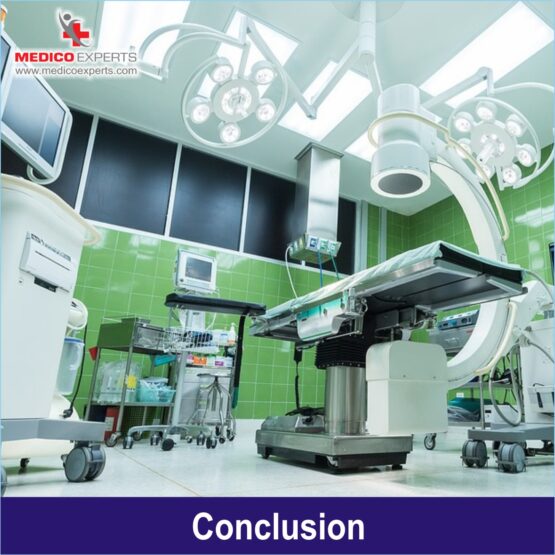
Frequently Asked Questions and patient concerns:
Q1. Is it possible for me to eat regularly following the procedure?
A. Many patients experience an improved ability to eat without the symptoms they previously had. However, dietary changes may still be recommended.
Q2. Is gastrojejunostomy reversible?
A. While it’s a permanent procedure, in some cases, it can be revised or adjusted if necessary, although reversal is not common.
Q3. What kind of follow-up care is required after the surgery?
A. Follow-up care involves regular visits to the healthcare provider to monitor recovery, ensure that the patient is healing properly, manage any complications, and adjust dietary or lifestyle recommendations if needed. Connect with MedicoExpert, we are committed to ensuring a smooth and successful healing, allowing patients to regain their quality of life and well-being.
Q4. Can gastrojejunostomy be performed on pediatric patients?
A. Yes, in certain cases, children with conditions like gastroparesis or severe obstructions may undergo gastrojejunostomy. Pediatric surgeons can perform the procedure while considering the child’s unique health needs.
Q5. Are there dietary restrictions or changes after the procedure?
A. Patients may need to adhere to dietary modifications initially, such as eating smaller, more frequent meals or avoiding certain foods. Over time, many patients can resume a more typical diet, but this varies from person to person.
Best Doctors for Gastrojejunostomy
Best Hospitals for Gastrojejunostomy

MedicoExperts is a Global virtual hospital which is established to offer quality healthcare services at affordable pricing without compromising the success rates of the treatment.
MedicoExperts is having a network of highly experienced super specialist doctors and well equipped hospitals across the globe and offering second opinion through online video consultation and surgical interventions through its empanelled super specialist doctors at its network hospitals in 17 countries from 3 continents.
By the virtue of its approach and model, MedicoExperts is successfully achieve to deliver
- Latest and most advanced treatments with success rates of international benchmarks.
- Multiple cost options depending upon the hospital facilities, with the same doctor.
- Treatment option in multiple cities/state/countries.
- Trust and peace of mind.
Most suitable for patients who are looking for:-
- Planned Surgeries and treatment from most experienced doctors and at multiple cost options as per hospital facilities with best possible outcomes.
- Second Opinion from expert doctors.
- Complex cases involving multi specialities
- International patients looking for treatment from Indian doctors

Author Bio:
Dr. Ashita Nandgaonkar – BHMS, MS in psychological counseling
Dr. Ashita Nandgaonkar is a highly esteemed homeopathic doctor with a passion for holistic healing and patient-centered care. Dr. Nandgaonkar remains dedicated to raising awareness about the benefits of homeopathy and promoting its integration into mainstream healthcare. Her mission is to empower individuals on their journey to health and wellness, embracing the holistic approach that homeopathy offers. She has a special interest in researching Homeopathic solutions for diseases that are difficult to treat with conventional medicines and therapies.
Content Medically Reviewed By MedicoExperts Editorial & Clinically Review Board







